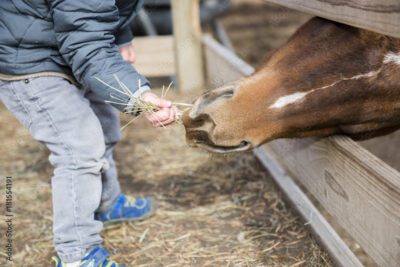By Christine Denise
Autism Mom and Contributing Writer for As You Are, a virtual clinic dramatically increasing access to early autism diagnostic services through the use of exclusively telehealth appointments
My husband and I have reacted to various medical milestones in our son’s life differently along the way.
For me, the autism diagnosis brought with it a host of emotions, while for my husband, a diagnosis about his spinal cord early on resonated.
Here is a summary of how we’ve reacted and responded to learning more about our son’s challenges.
Mom
For six years, I told anyone and everyone who ever asked me about my son’s special needs that he did not have autism – especially my husband.
I clung to the diagnosis of a chromosomal disorder that we received when he was about two months old.
I felt like that was all I could handle.
And I felt like maybe there could be a cure.
The little knowledge I had about autism was how much more research is needed and how little is known about the disorder.
And, there is no cure.
By the time our son turned 6, our pediatrician recommended we get an autism evaluation for him.
To appease her, I agreed.
I felt like this would be like most of the other evaluations we’ve had through his life that turn up no new answers for us.
I told her how his therapists told me they didn’t think he had autism because he made really good eye contact.
He studied our faces instead of looking away from them. And looked so deep into our eyes it felt like he was looking at our souls sometimes.
He also loved being social – even if it meant he was not following normal social cues such as someone flinching when he would go to hug them or grab them to get their attention.
When our evaluator told us she found him to be moderately to severely autistic, leaning more toward severely due to his language delay, I was shocked.
But what about everything his therapists had told us?
What about the eye contact?
His outgoing social nature?
His desire to be over stimulated and seemingly lack a sensory threshold?
The autism specialist who diagnosed him helped us realize children with autism are all so different.
Some do like eye contact.
Some are social.
And some have a high sensory threshold.
She said she could tell within the first few minutes of observing him that he had autism.
I felt like I had missed it.
From there, though, our world opened up to a new set of resources and opportunities for our son.
His genetic disorder is so rare that it’s not documented anywhere in the medical literature.
Autism, for all of its mysteries, is.
The diagnosis gave us a new path to explore – one we are very much not having to walk alone.
The label I once feared has turned out to be the most helpful.
Dad
For the first four months of our son’s life, we believed he had a tethered spinal cord.
A little dimple at the base of the spine was a tell-tale sign of the anatomical anomaly that essentially means his spinal cord tethered itself to the base of his spinal column and would have to be eventually surgically repaired.
It could mean he might never walk or crawl and would mean intense physical therapy to get him there.
I felt like we had to deal with whatever was going to happen, and that the situation had already been decided.
We met with a neurosurgeon who discussed how he would likely do the surgery when our son was 12 months old.
He told us how intense the recovery would be.
He told us he would need a scan of our son’s spine to know just how bad the tether was before he could tell us more or schedule the surgery.
I left his office that day feeling like we just had to deal with whatever was going to happen. I felt like it was already done, and we had no choices in any of it.
At four months, we got that scan.
Turns out, he didn’t have a tethered spinal cord after all. He just had the dimple.
That was probably one of the few moments in this journey that gave me comfort.
It also showed me how doctors might not always know exactly how our son is going to turn out, and only our son can show us that.
It’s something I’ve carried with me as we continue to learn about how his autism is affecting him.
Only he can show us the answers, and we’re learning from him every day.
Reacting Differently
When it comes to how differently we react, sometimes it’s good and sometimes it’s bad, but we just have to adapt. We’ve learned to appreciate the good moments even if they seem so small because the tiniest of victories are so much more meaningful when there are so many challenges. You are constantly going to be on a rollercoaster but that’s what makes the highs so much higher. Even though our reactions can be different, we remind each other that we are walking this journey together.
Do you have questions about your child’s development? The team at As You Are provides useful autism screening and diagnostic evaluations for kids 16 months to 10 years old via telehealth appointments.
Disclaimer: I am not a medical professional. This is a sponsored blog post, but all opinions are my own.


















